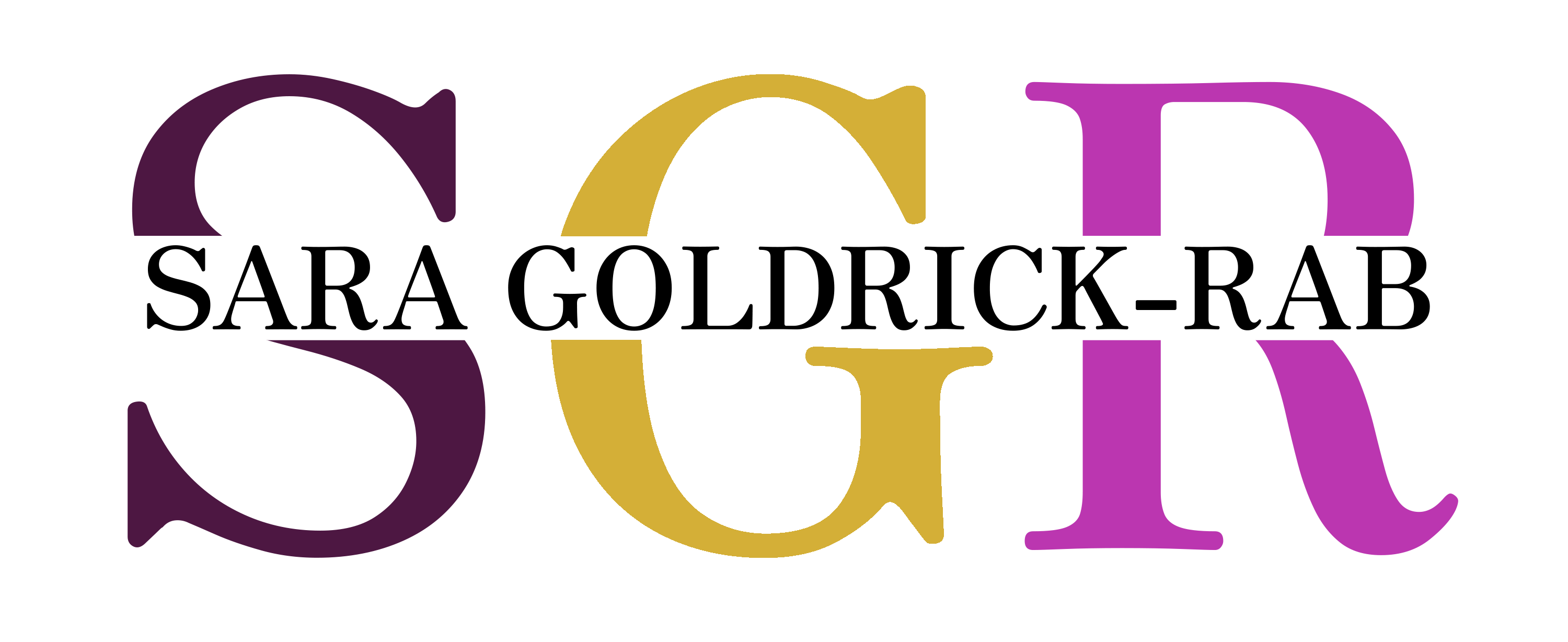#RealCollege: The Work and Activism of Sara Goldrick-Rab (2023)
“In the film Hungry to Learn Sara Goldrick-Rab appears wearing a
“#RealCollege” t-shirt. On the back of the shirt is written “it’s not ALL
about Harvard,” referring to the work of the #RealCollege movement in
breaking down stereotypes of the privileged college student in order to reveal
the reality of what college is like for a growing number of students from
poor, working-class, and middle-class backgrounds. Today’s college students
are, increasingly, not the stereotype of a carefree college student but instead
struggling to make it through school while juggling financial and familial
responsibilities. Goldrick-Rab’s work has not only uncovered this important
reality but works to draw attention to it in order to create change.”
Book Chapter from “The Future of American Higher Education: How Today’s Public Intellectuals Frame the Debate”
Edited By Joseph L. DeVitis
